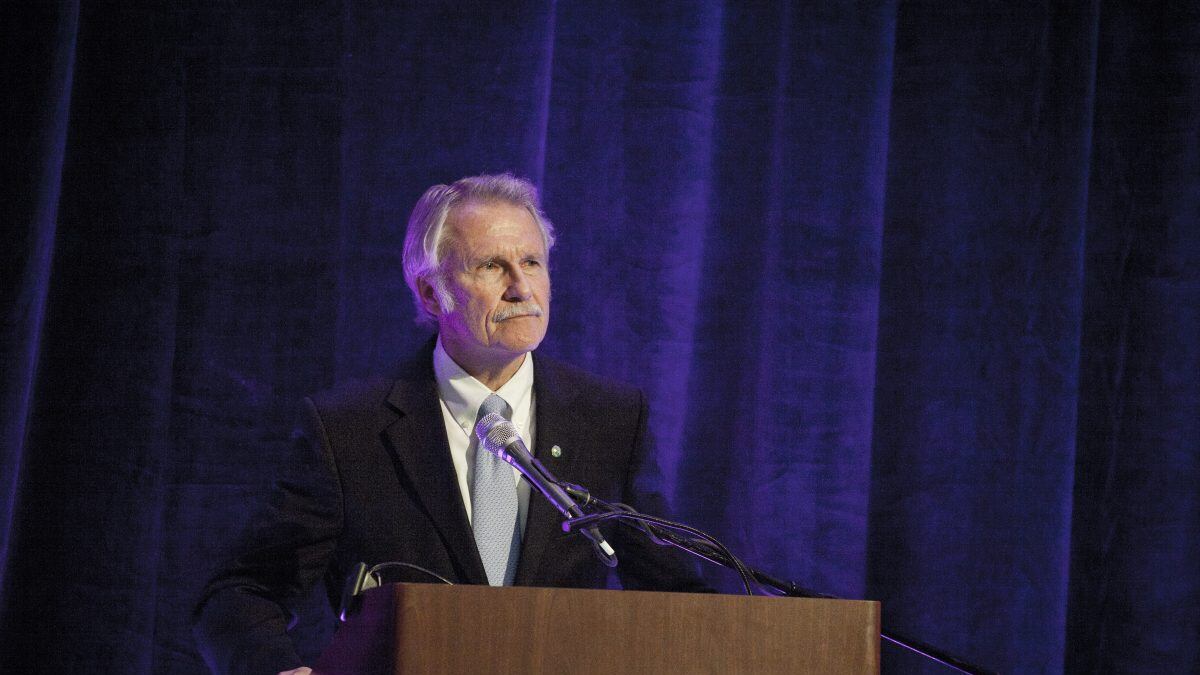Former Gov. John Kitzhaber weighed in over the weekend with his thoughts about how the state of Oregon can better respond to the COVID-19 pandemic.
"This is a true emergency and we need an Emergency Response Team, and Emergency Response Team Leader and the rapid development and execution of an Emergency Response Plan," Kitzhaber wrote on his blog March 15.
"Every day that goes by without an aggressive, coordinated Emergency Response Plan, undermines the likelihood that we will be able to successfully respond and manage the potential of a dramatic increase in hospital admissions. Therefore, it is urgent that we move beyond a public health response (as important as that is) to an Emergency Response."
Kitzhaber, an emergency room physician, resigned in 2015 amid an influence peddling scandal, but during his decades in public life and since his resignation, he has continued to communicate with health care policy leaders around the country, at conferences and in regular visits to Washington, D.C.
Here's how he sees the problem:
"Our health care system is currently not prepared to deal with the potential magnitude of COVID 19. To illustrate this, let's make some assumptions, based on experience in other countries where around 15% of those who contract the coronavirus require hospitalization and 5% require treatment in an ICU. Let's assume, for argument sake, that 2.5% of Oregonians contract coronavirus (this could be high or low, but offers a benchmark for scenario planning). This would be 100,000 Oregonians. Furthermore, given the rate at which the virus has spread in other countries, we could reach this number by June," Kitzhaber writes.
"Assuming that 15% will required hospitalization, we are looking at 15,000 admissions. Assuming that 5% will require intensive care, we are looking at the need for 5000 ICU beds. Currently, Oregon has 6,729 staffed hospital beds and 776 ICU beds. In short, currently, we simply do not have the capacity to deal with this. Even assuming that only one percent of Oregonians contract the virus, we are still looking at 40,000 cases; 6,000 admissions, and the need for 2,000 ICU beds—far beyond our current capacity."
Here's what Kitzhaber thinks Oregon ought to be doing:
"Immediate appointment of an Emergency Response Team with the authority to develop an Emergency Response Plan and to manage and coordinate all resource allocation decisions related to the pandemic. State agencies would be partners in the execution of this plan. The plan must include, among other things:
"Bed management and coordination, allocation of limited resources and patient triage, if necessary. The latter should be planned for in advance with the deep involvement of the OHSU Center of Ethics in Health Care and other like resources.
"Immediate development of statewide inventories of key supplies and resources. This needs to go beyond just counting masks. We need to be proactive and creative—for example, how many people in Oregon who have been diagnosed with sleep apnea have a CPAP (continuous positive airway pressure) machine sitting unused in their home?
"First responders and front-line workers should be given initial priority on protective gear to ensure an adequate health workforce.
"Immediate steps to expand "quarantine" hospital bed capacity."
